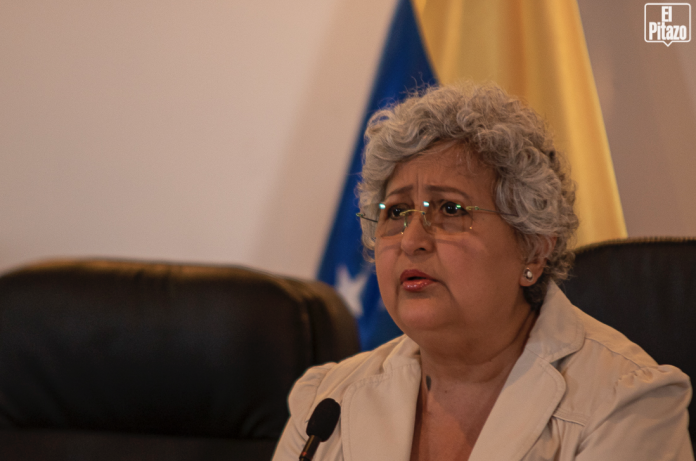GENEVA (6 May 2020) – A group of UN experts today demanded that Venezuela detail plans to tackle the devastating impact of the country’s economic crisis on human rights and also urged the United States to immediately lift sanctions that compound suffering.
“We are deeply concerned about the spiralling economic crisis, and the effect this has had on people’s ability to subsist from one day to the next,” the experts said. “The government must immediately explain how it intends to support people, many of whom are teetering on the brink of survival.”
The UN experts said the government has blamed crippling international sanctions for the humanitarian crisis, but many of the country’s problems such as food shortages, hyperinflation, power and water cuts and soaring unemployment preceded the trade restrictions.
“Nevertheless, and especially in light of the coronavirus pandemic, the United States should immediately lift blanket sanctions, which are having a severe impact on the human rights of the Venezuelan people.”
The experts said the health system is collapsing, with many hospitals struggling to function without reliable electricity or even running water.
“Hospitals are reporting a shortage of medical supplies, protective equipment and medicine. Given the severe impact of the COVID-19 pandemic on low-income people in even the wealthiest countries, this is alarming. The government should also ensure that people have the support they need to safely practice social distancing.”
The education system has lost thousands of teachers and many children no longer attend school because of lack of energy due to not having food at home or because they cannot afford transportation. “This guarantees the crisis will do lasting damage to the next generation,” the experts said.
The experts noted that the UN World Food Programme estimates that a third of the population is food insecure.
The experts were alarmed by reports that journalists, lawyers and medical workers have faced retaliation and even been detained for raising concerns about conditions in the country. Anyone arbitrarily detained should be released immediately, and the government should investigate these allegations.
“There is no doubt that the government is facing numerous challenges right now, but human rights cannot be put on hold. Even at a time like this, the government still has an obligation to protect people’s basic rights,” the experts said.
ENDS
(*) The experts: Mr. Olivier De Schutter, Special Rapporteur on extreme poverty and human rights; Mr. Léo Heller, Special Rapporteur on the human rights to water and sanitation; Ms. Kombou Boly Barry, Special Rapporteur on the right to education.
The Special Rapporteurs are part of what is known as the Special Procedures of the Human Rights Council. Special Procedures, the largest body of independent experts in the UN Human Rights system, is the general name of the Council’s independent fact-finding and monitoring mechanisms that address either specific country situations or thematic issues in all parts of the world. Special Procedures’ experts work on a voluntary basis; they are not UN staff and do not receive a salary for their work. They are independent from any government or organization and serve in their individual capacity.
For more information and media requests, please contact Patricia Varela at: pvarela@ohchr.org
For media enquiries regarding other UN independent experts, please contact Xabier Celaya (+ 41 22 917 9445 / xcelaya@ohchr.org)
Follow news related to the UN’s independent human rights experts on Twitter @UN_SPExperts.
Concerned about the world we live in?
Then STAND UP for someone’s rights today.
#Standup4humanrights
and visit the web page at http://www.standup4humanrights.org




